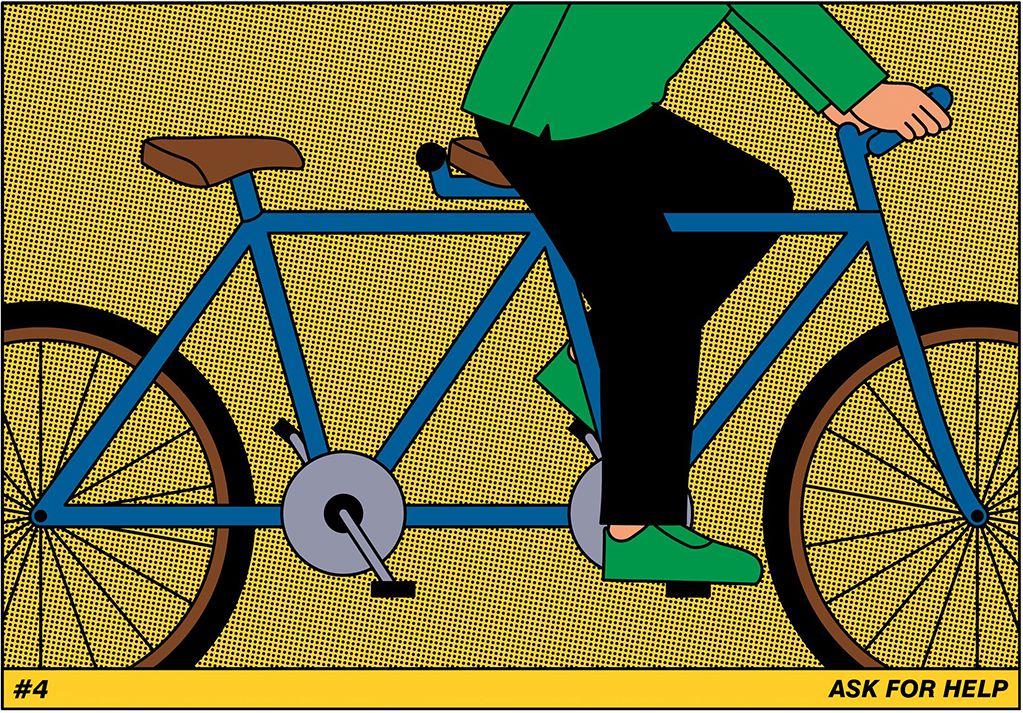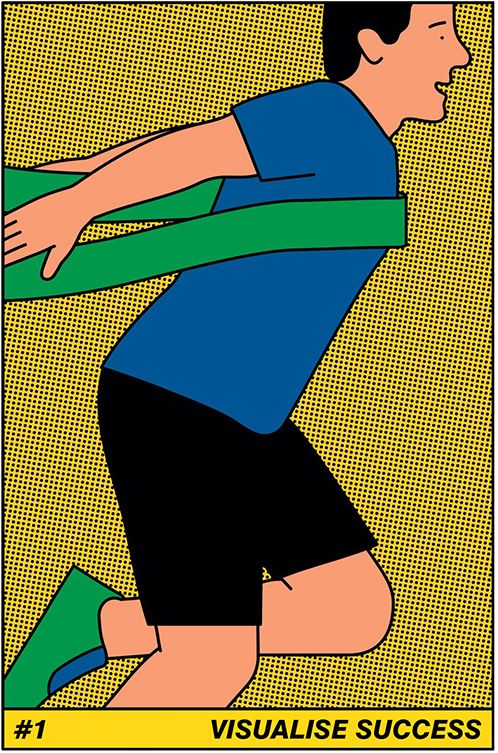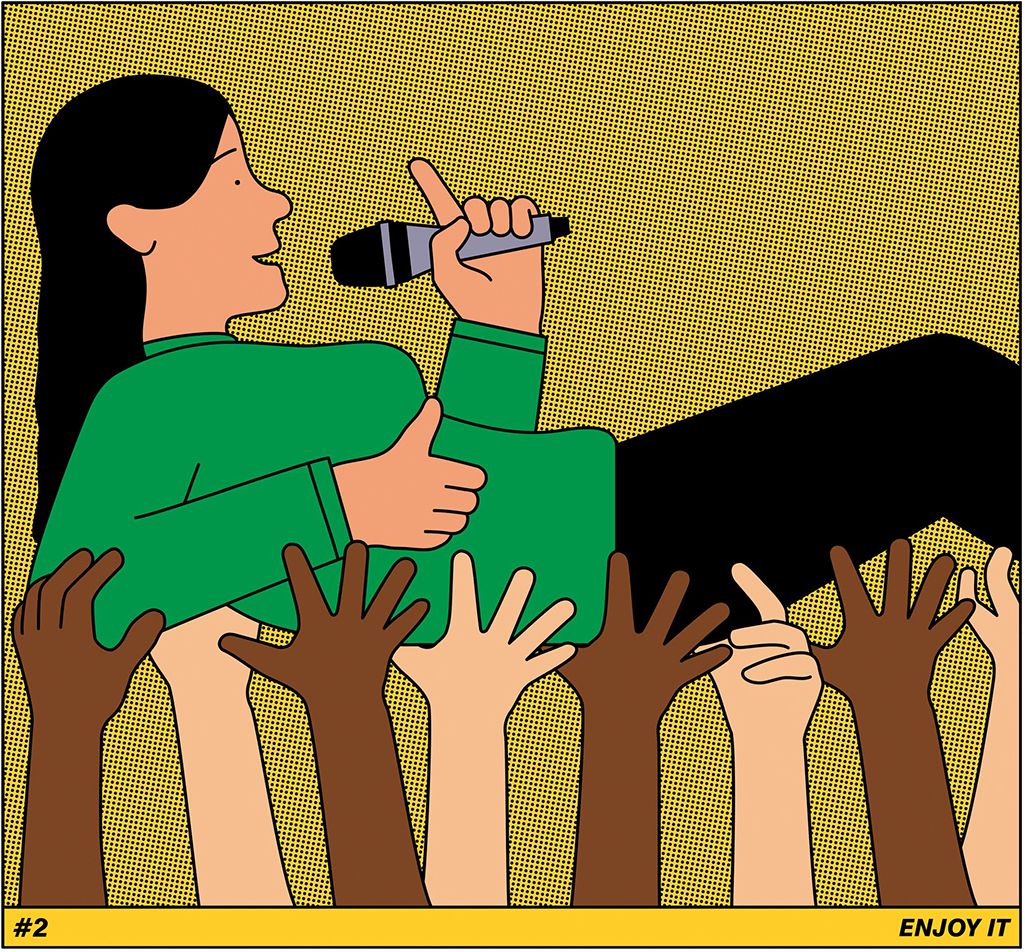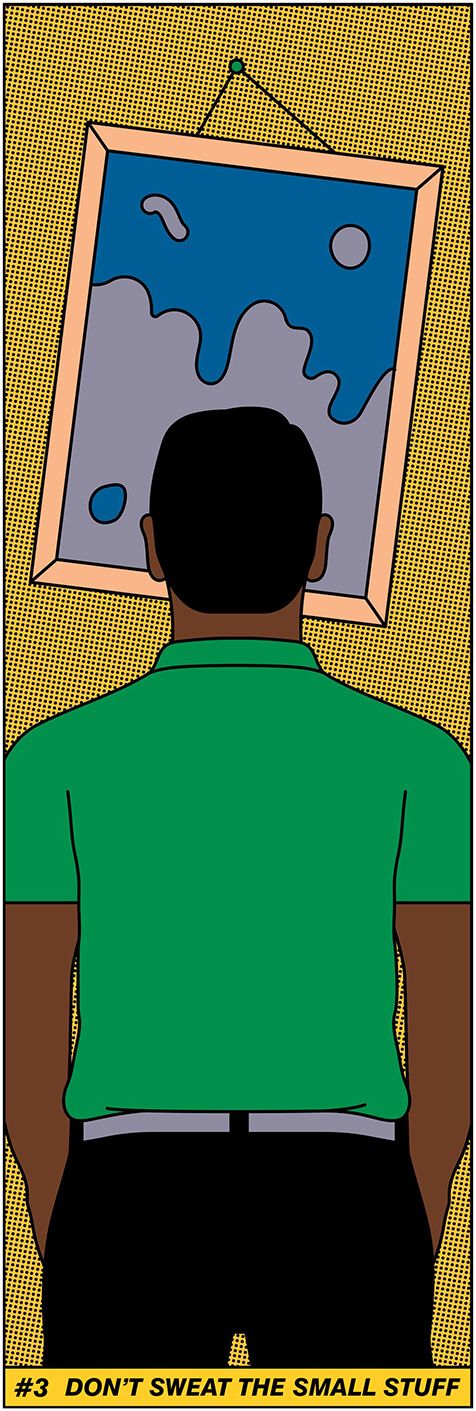Take the Pressure
There are nerves – and then there are nerves: for a performer, the pressure is sometimes off the scale. But can you use that to give the performance of your life?

Performing in front of thousands of people is a normal night in the office for Gil Glasenberg, Class of 2012 (2001-12). His career as a DJ and music producer has taken him to festivals, clubs and stages all over the world, and his recordings are now handled by Sony Music, but when he first began DJing at local clubs in Zurich aged 16, he was terrified.
“I’d be due to play at 3am and I’d be at the club by midnight, shaking and feeling sick,” he remembers. “I was a very shy guy – the kind who sits at the back of the classroom and never speaks. To DJ and have everyone looking at me was overwhelming. But I loved DJing and I loved music, and I realised it could be my way into a career in the music industry. So, I just got used to it. I did it over and over again and it became normal for me. Though I do still feel a little bit of fear when it’s a festival of 40,000 people…”
While most of us won’t have to appear in front of vast crowds any time soon, we all know the feeling of performing under pressure, whether going for an interview, pitching an idea, giving a lecture or making a speech.
For some of us, it’s second nature. But for others – like Gil, a graduate of the Clive Davis School of Recorded Music at New York University Tisch School of the Arts – it’s a skill he’s developed to deal with the pressure.
However, what if we were able to remove that pressure entirely, asks Fred Luskin, Director of the Stanford University Forgiveness Projects and Associate Professor at the Institute of Transpersonal Psychology. He suggests that pressure to perform comes, after all, from ourselves, and from our need to succeed. That’s natural: nobody wants to be the one who falls over on the steps to the podium, forgets their lines or comes last in the spelling bee.

“Ask yourself: ‘Is this what I really want?’ If the answer is yes, you are choosing the pressure, and suddenly there’s no threat. If it doesn’t work out, it’s not the end of the world”

But you don’t have to succeed, says Fred – a controversial view, he admits, in the sports coaching world. “You don’t have to do anything. In fact, that ‘have to’ could be what’s holding you back,” he says.“The ‘have to’ puts an enormous amount of pressure on you. And it’s dishonest, because if you don’t do what you have to, you will still survive! You’re just putting a demand on yourself that you can’t necessarily meet.”
Imagine, he says, stepping up to pitch in a baseball game and telling yourself that your life will be over if you don’t do it right. The pressure will paralyse you. “When you have a basic, underlying cognition that you have to get this, you drive yourself crazy, and you make it less likely that you will be able to think clearly enough to succeed.
“Don’t say: ‘If I don’t do this, my life is over’. Instead, say: ‘Wow, what an opportunity I have. What a privilege. I am blessed, and I want to do the best I can. I want to show myself what I can do – I don’t have to do this, I want to. And I’m legitimately
choosing this situation to try to succeed.’”
Brett Morachnick, Class of 2018 (2007-13), agrees. He was also a shy child, who found his voice through school plays at ZIS, such as Les Misérables in 2010. He discovered a love of getting up in front of people and telling stories, and went from strength to strength. He’s now studying acting at the University of Southern California (USC).
“Performing is scary at first, but it’s a skill – one that you can learn over time. Start small, put yourself out there and realize that the worst thing that can happen isn’t even that bad”
“Just getting out of your comfort zone any way that you can and putting yourself out there is going to help,” he says. “Performing is going to be scary at first, but it’s a skill – one that you can learn over time. Start small, put yourself out there and realize that the worst thing that can happen isn’t even that bad.”
Nonetheless, says Brett, the pressure is still on whenever he steps out on to a stage, or in front of a camera. “In the theater, particularly, you’re in this dark room and everybody’s focusing their attention on you. It’s unlike anything else, especially nowadays when people are always on their phones. It seems like there’s a different kind of present, where people are on their phones and computers all the time. Rarely are we in a space where people are fully investing in the moment.”
He compares the time before he’s about to go on stage or in front of a camera to a steep incline on a rollercoaster. “You’re going up and up and about to reach a peak and now you’re getting the anxiety for that downward fall. You know it’s going to be fun in the end, and you’re going to want to do it again, but you’re still worried. What if something bad happens? But once you are on that downward trajectory, it’s a surge of energy like nothing else.”
And you can use that surge of energy to make your performance better, he says. In acting class, students are encouraged to direct that pressure and stress on to the character, focusing on what the character wants in a scene, how the character acts and how they get what they want.
“So, the pressure or judgment never really falls on me as a person,” says Brett. “I feel like I’m able to direct it towards my character. I think that’s applicable to things other than acting, as well. If you’re doing a class presentation, or you are having a very important interview, you can focus on the task at hand rather than focusing on the judgment on yourself.”
According to Emily Kessler, Class of 2013 (2009-13), a dancer and choreographer based in Brooklyn, New York, practice and preparation are the keys to overcoming pressure. For her, the stakes are very high: if she doesn’t prepare her body properly, she could end up getting injured. “It’s about ritual,” she says. “In a way, warming up is like a safety net, so I can be aware of my body. Mentally, I like to zone out a bit before a show and get myself in a place where I am calm and collected.”


Emily says she still gets nervous: it’s difficult not to when there’s a lot at stake. “It’s hard to always feel 100 per cent confident each time. When I was younger and maybe less experienced, I was more confident, because I was performing out of my own interest. But as soon as I became responsible for carrying somebody else’s artistic vision to the stage in dance, there’s a lot more pressure.”
Which is why practice is absolutely key – often, she says, amounting to many months of preparation. And although your important interview or your speech might not lend itself to that level of detail, there’s a lesson in how Emily gets to a place where, as she puts it, “you can trust the choreography that you have been rehearsing for a long time. All that practising and repetition becomes imprinted in your memory, so you can feel confident when you step out on to the stage. It’s about bringing that confidence with you.”
Gil agrees that when he’s playing a set, the positive energy he gives off can galvanise the audience, which in turns boosts his own performance – the two positively feed off each other. There’s a big difference, he says, between the DJs who don’t engage with the audience and the ones who do – and love it.
“There are some DJs that just stand in the booth and do their job; it feels like they’re doing it for the money, standing like sculptures as if nothing’s happening. But when the DJ is jumping, going crazy to the music and engaging with the crowd, it brings a whole new energy. You get your adrenaline from the crowd, and seeing their reaction makes you more energetic.”
Being aware of what your body is doing is also key, says Brett: he uses mindfulness breathing techniques before and during a performance. “It’s a lot about just recognizing your thoughts as temporary and fleeting, and relabelling negative, anxious thoughts as positive ones that you can use to your advantage,” he says.
According to Fred Luskin, no specialist knowledge is necessary for this, just the ability to take slow, deep abdominal breaths to reduce adrenaline. While some adrenaline gives you a short-term boost, that doesn’t last long. “Deep breathing, or talking yourself down, helps you manage the stress response,” he says. “If you are feeling tense, let it go. Tell yourself that you have handled this well before and you will handle it perfectly well again.”
The key here, Fred says, is to recognise that you have a choice. “Ask yourself: ‘Is this what I really want?’ If the answer is yes, you are choosing the pressure. Suddenly, there’s no threat there, so there’s much less danger. If it doesn’t work out, you’ll choose something else. It’s not the end of the world.”
